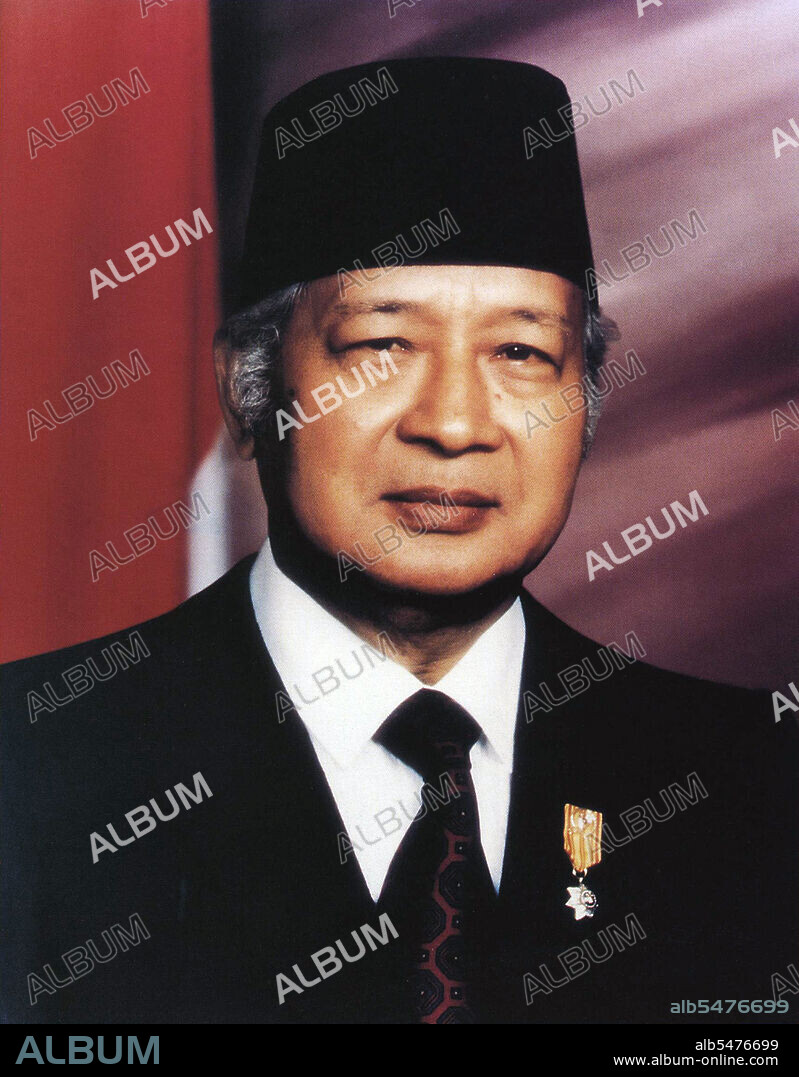alb5476699
Suharto, Second President of Indonesia.

|
Add to another lightbox |
|
Add to another lightbox |



Title:
Suharto, Second President of Indonesia.
Caption:
Suharto (8 June 1921 27 January 2008) was the second President of Indonesia, holding office for nearly 32 years, from 1967 until his resignation in 1998. In Indonesian literature and media, he is often referred as Pak Harto. The son of Yogyakarta famers, Suharto joined the struggle for independence from the Dutch as a young man. Rising to the rank of major-general in the Indonesian army, Suharto helped lead an anti-Communist purge in 1965 that led to him and the military assuming a leading role in domestic affairs. When President Sukarno was removed from office on 12 March 1967, Suharto quickly assumed the presidency and cemented his leadership. Suharto's legacy is controversial: his rule was often autocratic and, in later years, was punctuated by allegations of nepotism and corruption. However, supporters of his 'New Order' administration say he managed a strong economic policy while centralizing power in what could have been a fractious Indonesian state, made up as it is of myriad islands, cultures and religions. As a staunch anti-Communist, Suharto was widely supported in the West and by his Southeast Asian neighbors.
Credit:
Album / Pictures From History/Universal Images Group
Releases:
Model: No - Property: No
Rights questions?
Rights questions?
Image size:
3500 x 4483 px | 44.9 MB
Print size:
29.6 x 38.0 cm | 11.7 x 14.9 in (300 dpi)
Keywords:
ASIA • ASIAN • DICTADOR • DICTATOR • DUTCH EAST INDIES • HISTORIA UNIVERSAL • HISTORICAL • HISTORY • INDEPENDENCE • INDONESIA • INDONESIAN FOLK ART • INDONESIAN • ISLAM • ISLAMIC CULTURE • ISLAMIC • ISLAMISM • MILITAR • MILITARS • MILITARY • MUSLIM • POLICY • POLITIC • POLITICA • POLITICAL • POLITICIAN • POLITICO • POLITICS • PRESIDENT • STATESMAN • SUHARTO
 Pinterest
Pinterest Twitter
Twitter Facebook
Facebook Copy link
Copy link Email
Email

